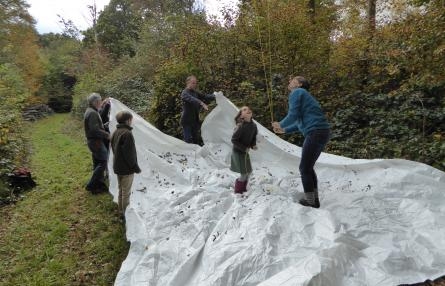
Protecting Suffolk's trees for the future at Kew’s Millennium Seed Bank

Suffolk Wildlife Trust is a partner in the UK National Tree Seed Project, which has been set up by the Royal Botanic Gardens, Kew’s Millennium Seed Bank, with funding from players of People’s Postcode Lottery.
Tree seeds collected as part of the project are safely banked in the underground vaults of Kew’s Millennium Seed Bank – forming the UK’s first national collection of tree seeds. These collections play a vital role in conservation work to protect UK trees and woodlands, including against pests and diseases such as ash dieback. The collections, and associated data, are available to researchers working on solutions to tackle the many threats facing our woodlands.
Clare Trivedi, UK National Tree Seed Project Co-ordinator at Kew Gardens, says, “Building up our seed collections of the nation’s favourite and most important tree species is a vital step in combating the multiple challenges, including pests and diseases, which threaten to alter our landscape dramatically. We are delighted that Suffolk Wildlife Trust is supporting this project to help us ensure that seeds from across the UK are collected and conserved.”
The UK National Tree Seed Project launched in May 2013 with the aim of securing genetically diverse collections of UK native trees and shrubs. The species target list takes into account factors such as conservation status, prevalence in the landscape and vulnerability to pests and diseases. The target species include many which underpin the UK’s wider plant and animal diversity, as well as supporting woodland industry, tourism and recreation, such as ash, juniper, Scots pine, alder, beech, silver birch and yew. To date, the project has collected more than 8.6 million seeds sampling from over 7,300 individual trees across the UK.
